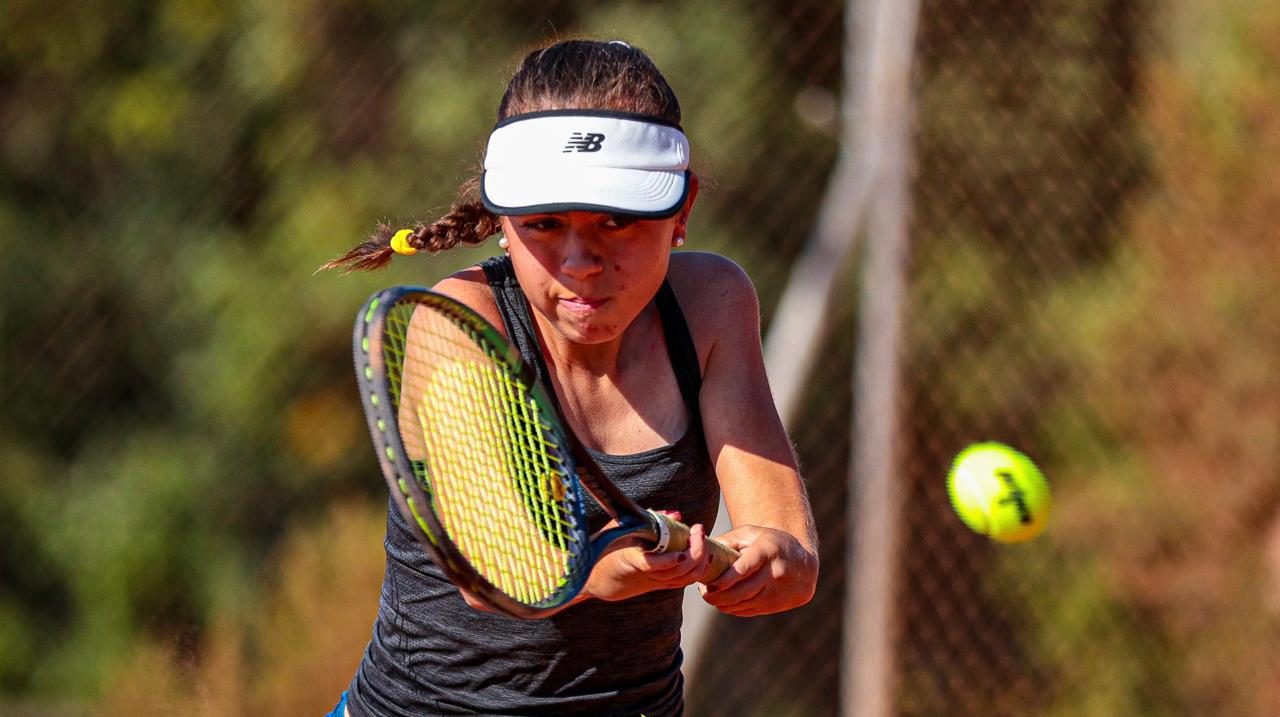
Nothing to hide: Martina’s story
June 2025
Published by Phonak Team
Right now, odds are that Martina Siebert is on a tennis court – somewhere. It could be Barcelona, where she took second place at last year’s Para-Standing Tennis World Championships. Or maybe Turin, to defend her title at the European Championships. Then again, in between the 20 or so tournaments and exhibitions on her calendar this year, she could be back home in Santiago, Chile.
No matter where she finds herself, the upbeat 19-year-old champion is at the heart of a growing sport. Para-standing tennis, as defined by the sport’s governing body, is played without a wheelchair by people with physical disabilities – which in Martina’s case would be the absence of a radial bone in each forearm. The TAR syndrome she was born with also caused other complications, including the hydrocephalus that led to hearing loss, diagnosed at age three.
And yet, cheered on by her parents and older brother, Martina picked up a tennis racquet at the age of five. By her mid-teens, she played in her first tournament. Today, as one of the top-ranked para-standing tennis players in the world, she is not just competing full-time but inspiring other athletes, with and without disabilities – and sometimes sharing hard-earned wisdom with sports coaches twice her age. Team Phonak recently had the chance to chat with Martina. Our exchange has been edited for length and clarity.
Home on the court
I remember the tennis club near our house where I started playing when I was five. In a way, the club was almost like our yard because my family always liked being outdoors and physically active. In childhood, I also played volleyball, hockey and handball. But during the pandemic, I stopped doing sports, and when we all returned to school, I didn’t feel so confident. I was a teenager and more aware of my differences, like my shorter arms. I was also insecure about my hearing loss. The world was getting back to normal but still using face masks. No longer being able to read lips didn’t help my confidence.
But after the pandemic, I started playing tennis again. I felt I could really be myself on the court – the only place where I was no longer hiding and had nothing to hide. I decided to compete in my first para-standing tennis tournament in November 2021, and it felt great. I lost but felt it was what I wanted to do. In my third year of high school, I told my parents that I saw my future playing full-time. I ended up transferring to a school for sports and the arts, and that gave me more time to train. Since graduating, I’ve been training full-time and am now nationally ranked: second overall and first in the women’s category.
Mobile support systems
Despite now living alone and away from my hometown, I know I can count on my family 100%. They’re always there for me and travel with me to every tournament.
But I also have to mention my hearing aids. Without them, I don’t think I would be able to live on my own. They are also very important in my training – it’s essential to hear my coaches’ instructions, the ball bounce on the court and the sound the ball makes when it hits my racquet. It’s also great listening to my “happy music” as part of my relaxation technique before every match.
Still, I do think my hearing loss has affected my mindset. I’m very structured, and I find it difficult to adapt to new people or unknown, uncomfortable situations. This mindset is a big challenge when I have to compete, and when I feel I can’t always play “my game” and need to think of new strategies. This is hard but part of my training. Being able to adapt to different situations is just part of life. And in a positive way, this mindset helps me focus on my goals.
Making a difference and thinking big
Even though tennis is mostly a solitary sport, I think I’ve been able to create a path for younger players or at least inspire them. Realizing that I can touch others with my example and achievements is rewarding and helps to keep my spirits high. And despite my disability, I don’t see it as a handicap – it’s just a different way of doing things. I think that hard work, determination and discipline can help you do what you dream of doing, and you shouldn’t let others limit your decisions.
As for my dream, I’m hoping that para-standing tennis is included in the 2028 Paralympic Games in Los Angeles. I believe it’s a beautiful discipline of tennis for disabled people who can walk. Right now, only wheelchair tennis is played at the Games and in the Grand Slam tournaments, such as the French Open – which my biggest inspiration, Coco Gauff, just won. So I’m working with other para-standing tennis players to call attention to the sport and help it grow. We need more players, especially young players and women!
Martina wears Phonak Lumity hearing aids.